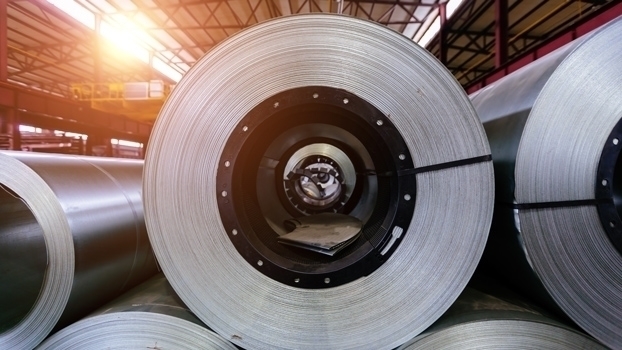
The steel of the future is green steel. In order to achieve climate neutrality by 2045, the German steel industry must completely replace almost 70 per cent of its production facilities within two decades. Germany is the largest steel producer in Europe and the seventh largest in the world. 90,000 people work in the German steel industry. 330,000 workers are directly employed in the European steel industry, and 2.67 million employees work in the steel industry and in jobs linked to it.
The steel sector is therefore significant in terms of the number of jobs, its role in industrial production and in the necessary socio-ecological transformation. But how can the transition to green steel production succeed? Salzgitter is planning to start regular production of steel using hydrogen-based technology from 2025. However, the steel will only be green once the hydrogen used has been produced through renewable energies. How can this be ensured? And how are the discussions on renewables and the necessary infrastructure to produce green hydrogen led in other steal-producing European countries such as France, Italy and Spain? How do we deal with the necessary reskilling and upskilling of workers? And what conditions should be linked to public subsidies within the sector? What role does the public sector play as a shareholder (the state of Lower Saxony owns 26.5 per cent of the shares in Salzgitter AG)? How can the necessary socio-ecological transformation be financed if, at the same time, we see a return to strict austerity measures both in Germany and at the European level? How can the trade unions become a driver of the transformation? And what role does industrial democracy play here?
We would like to discuss this with you, and it is therefore our pleasure to invite you to our conference in Salzgitter (Germany).
Languages: German, English, French, Italian, Spanish
Draft programme
- Friday, 12 April 2024
late afternoon – bus tour to the steel plant in Salzgitter (for those arriving already on Friday) - Saturday, 13 April 2024
10.00 a.m. Opening - Heinz Bierbaum, Chairman of the Executive Board of the Rosa-Luxemburg-Stiftung
10.10 a.m. - 11.30 a.m. Panel 1: Overview of the steel industry ++ Current challenges ++ Why is industrial policy necessary ++ Why is the steel industry important for the transformation of society?
Speakers: Steffen Lehndorff (economist), Ulrike Eifler (spokesperson of the national working group Betrieb & Gewerkschaft, DIE LINKE.)
Followed by: Discussion
11.30 a.m. - 11.45 a.m. Break
11.45 a.m. - 1.15 p.m. Panel 2: Challenges for the necessary energy transition and infrastructure expansion ++ What is needed at the European level? ++ What must a European industrial policy look like to ensure a just transition?
Speakers: Loris Scarpa (Italy, FIOM), N.N. France (trade union CGT), N.N., N.N. Spain (trade union CCOO)
Followed by: Discussion
1.15 p.m. – 2.15 p.m. Lunch break with catering on site
2.15 p.m. – 3.45 p.m. Panel 3: Concrete challenges for the steel industry: Reskilling and Upskilling ++ What conditions should we demand when subsidies flow? ++ What is the role of public ownership?
Speakers: Matthias Wilhelm (First Authorised Representative IG Metall Salzgitter-Peine), N.N., N.N., Franziska Heinisch (#wirfahrenzusammen) (tbc)
Followed by: Discussion
3.45 pm - 4.15 pm Coffee break
4.15 p.m. – 6 p.m. Panel 4: Outlook: How can the transformation be financed? How must long-term planning look like and how do we achieve political alliances? How can trade unions become drivers of transformation? -
Speakers: Heinz Bierbaum (Chairman of the Rosa-Luxemburg-Stiftung), Hans Jürgen Urban (Member of the Executive Board of IG Metall), Victor Perli (Member of the Bundestag, DIE LINKE)
Followed by: Discussion
6 p.m. Conclusions
We look forward to welcoming you to Salzgitter.
Location
Contact
Frau Manuela Kropp
Project Manager, Rosa-Luxemburg-Stiftung Brüssel
Email: manuela.kropp@rosalux.org
Phone: +32 2738 7661